(Not)compare conflicts: Why does the Russo-Ukrainian War differ from the Israel-Palestine conflict?
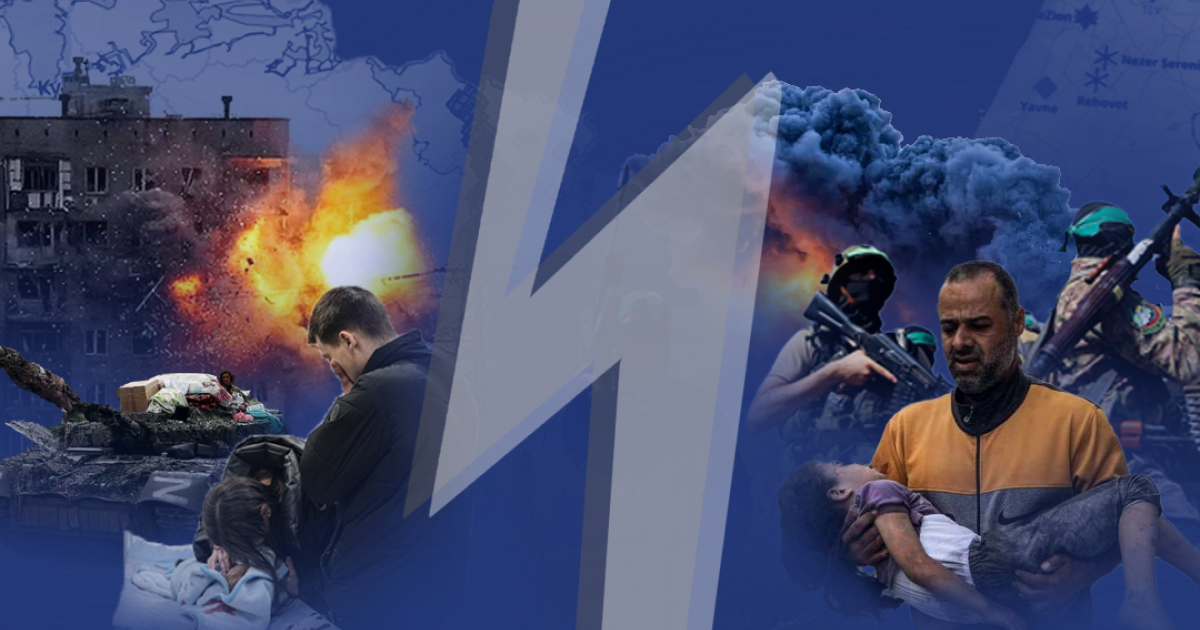
The new phase of the Israel-Palestine conflict brings more questions than usual. Now, it also connects to the Russo-Ukrainian War. Why does Ukraine officially stand with Israel if this country occupied Palestine in the first place? Are Iran and Russia involved in this conflict? How do HAMAS close the way to support civilians?
Svidomi talked to Ibrahim Al-Marashi, an associate professor of history and global studies at California State University and formerly a visiting professor at Ivan Franko University in Ukraine, about that.
We see that a lot of people want to take sides because when we talk about Russia and Ukraine, it's easy to do that. But it's difficult when we talk about Palestine and Israel. We don't know much about their history. What are we missing when we talk about this conflict?
This is a different conflict compared to Russia and Ukraine. Mostly, a lot of people in Russia are isolated from the conflict because of the distance. Others usually support its leadership. Most Russians blindly follow Putin without questioning the rationale of the war.
On the other hand, this — Israel-Palestine — conflict is in such a small piece of territory that, in the long run, nobody will win, and everyone will lose. This is a conflict where civilians on both sides are going to be affected. And where both sides have poor leadership or lack of leadership. And that's the main difference.
Zelenskyy is proven to be a hero in that he's led his country in defence in unimaginable circumstances. But in the Israel-Palestine crisis, I would say it resulted as the fault of entrenched leaders since 1990, who never had an interest in pursuing peace.
Benjamin Netanyahu has been in power since 1996. That's when he first became Prime Minister. He has been the longest Prime Minister in Israel's history. And he was always engaged in a short-term vision of how long we can keep the status quo without making any painful concessions to peace.
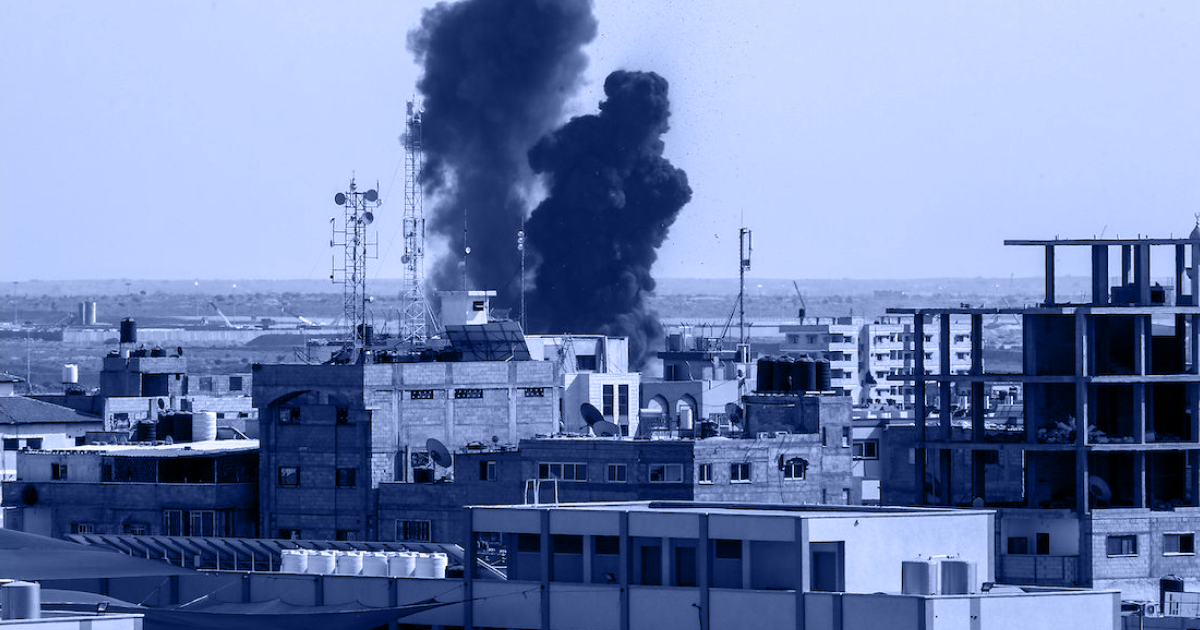
The Palestinian leadership in the Ramallah has been notorious for corruption and incompetence. And they let this problem fester, too. On that level, I say this crisis emerged due to poor leadership on both sides, who only looked towards tomorrow and never looked at the long-term future. Every Palestinian realises this. And that frustration led to not one but two intifadas (resistance movements).
Simply, what happened last Saturday is just a repeat amongst a new generation who forgot what the 2000-2005 intifada (a Palestinian uprising in the Israeli-occupied Palestinian territories and Israel) looked like and how detrimental it was to both societies, Israelis and Palestinians.
And so that's why it's complicated in that sense. I would say it's not about rooting for both sides. I would say there are primarily the people at the bottom who are going to suffer for the leadership at the top. And that's why it's not analogous to the conflict between Ukraine and Russia.
In one case, you had clearly an aggressor that just never recognised Ukraine and is doing everything possible, from ecocide to destroying the environment to killing animals to slaughtering civilians. Whereas, which has the superior military.
The difference is that Hamas is not Russia. It's not the superior military force in this conflict. It was a brutal attack launched out of being in a small piece of territory under blockade since the year 2006. And that's why the analogies don't work in this case.
We also saw a lot of messages that people compared what Israel did to the sector of Gaza. And they compared that Russia would never do it to Ukraine. And we, as Ukrainians, don't want to compare these conflicts. But we are forced to do it because we just need to show what Russia is actually doing in Ukraine is the same. So my question here is: how to communicate here?
A way to reach international audiences is to tell them, 'do not forget one tragedy because another unfolds’. And just to see these as collective tragedies of the 21st century. Knowing how international audiences work, that's not going to happen. I think international audiences were getting, I hate to say it, desensitised and tired of the conflict in Ukraine.
Think of what was happening in Ukraine akin to what was happening in London during the Blitz, during World War II or Guernica. Think of this as tragic stories of civilians caught in conflict.
And that we have a responsibility to remember civilians caught in these conflicts. Unfolding the responsibility to remember is to look at the civilians caught in the conflict and have a responsibility to remember them. Unfortunately, we live in a polarised world where we pick sides and root for them like international politics is a football team.
And the thing is, with Ukraine, it is civilians on the Ukrainian side that are being disproportionately affected. And with Gaza and Israel, it's also civilians on both sides who are getting caught up in a conflict they didn't decide.
This is the thing. In Israel, most of the people who could have been victims, maybe 50 per cent, might have been anti-Netanyahu the day before. Seeing what he was trying to do as a power grab. And not all Palestinians support Hamas at the same time. But this is what's going to get forgotten.
Yeah, I also have a question about HAMAS. Do they represent Palestinian people, and why are they not the same?
Hamas reflects that poor leadership that I was talking about. Since the 1990s, Palestinians have been led by the Palestinian Authority (there are two Palestinian governments, one in Gaza run by Hamas and the other one in the West Bank run by the Palestinian Authority). For most of Israel's history since the mid-1990s, they've been led by Netanyahu. And what I would argue is on both sides, we had ageing leadership that was incompetent and corrupt.
Netanyahu was supposed to be tried for corruption. That's why he wanted to change the Supreme Court, to avoid a corruption charge. So, basically, any support for Hamas is out of desperation because the incumbent Palestinian Authority government has been notoriously corrupt.
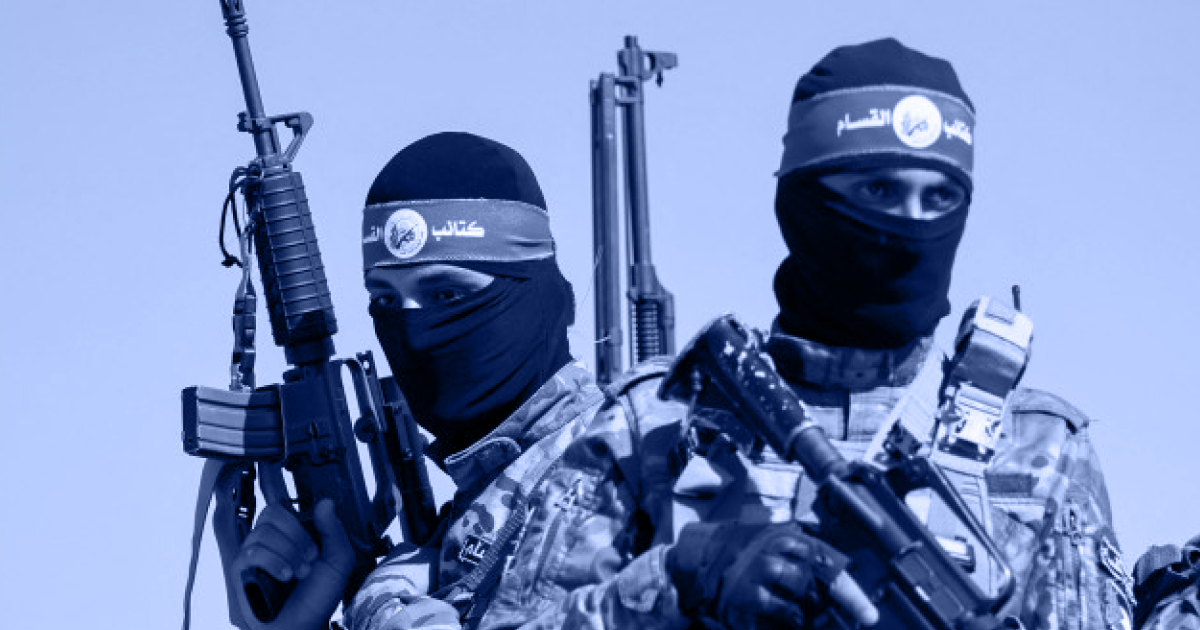
And it's also just ageing. Their leaders are old. Mahmoud Abbas (Palestinian President) is 87 years old. So, in the case of Hamas, it's not that all Palestinians support them. It is out of desperation that they support them.
When Hamas launched this attack, it was deliberately an indirect acknowledgement that not all Palestinians support them. And that Hamas is seeking to get their support. In 2021, during a fighting between Israel and Hamas, and in 2023, the attacks were an indirect acknowledgement that Hamas does not have the support of the Palestinians and that they're seeking it. And it strikes out.
Palestinians who don't support Hamas are getting offended that Ukraine stands with Israel. It is our official position, and some Ukrainians think that Hamas and Palestine are the same, so they choose to stand with Israel. How can or should Ukraine communicate here when our official position is to stand with Israel?
It's hard. And I think that's where news organisations like yours are important, to communicate the nuance. And I mean, I know for a fact, having Ukrainian students, that the position is a lot more complicated. It's my former Ukrainian students who have shown that, well, this is the government's stance.
In fact, we do sympathise with civilian losses, whether it's on the Palestinian side or both sides. And I think that's the way going forward. I think in the beginning, it might have been easy for Ukraine to side with Israel because a lot of the technology, the military technology Hamas would have been using, would have also come from Iran.
It's understandable that you might be initial reaction was to side with the Israeli civilians
because, on that day, they were all the victims. But what we have witnessed since this week has unfolded is that it's easy now to see that there's going to be victims on both sides and to be aware of that.
I think most governments around the world are doing that. They are siding with Israel because, on that day, Israel was the victim. And now we're seeing it's a much more complicated situation, that just within the span of the week, there have been as many now Palestinian fatalities as Israeli fatalities.
Yeah, they also cannot understand why Ukraine supports Israel when Israel occupied Palestine in the first place.
Exactly. But you know, I have to be honest, on one side, most, I think, Arab public opinion was also siding with Russia throughout this conflict. So you also have to look at the other side. Because, you know, you have to admit from the other side, from the Arab perspective, they also looked at the Russia-Ukraine conflict very much as two sides without looking at the complexity.
So, if Ukraine is a de facto ally of the US and NATO, then a good amount of Arab public opinion is going to sympathise with Russia.
That's what's been happening. From the Arab side, it's less complicated because you had Russian involvement with Syria. You do have a good number of Syrians who are sympathetic with Ukraine, they were saying we were both bombed by the same weapons. But that was lost over time.
I would say most Arab public opinion sided with Russia at the end of the day because of the greater US conflict. When the lines were drawn, if the US is behind Ukraine, then a good number of Arabs are going to side with Russia.
In your article for the Kyiv Post, you wrote that Iran is involved in this conflict. What benefit does Iran have in this Israel-Palestine war?
While I believe Iran did not order this attack, the fact that there is a debate about it is what Iran wants. Ironically it’s a tactic they borrowed from the Israelis. Israel never declared it has nuclear weapons, but the fact that we debate about it, is enough of a deterrence. The same with Iran.
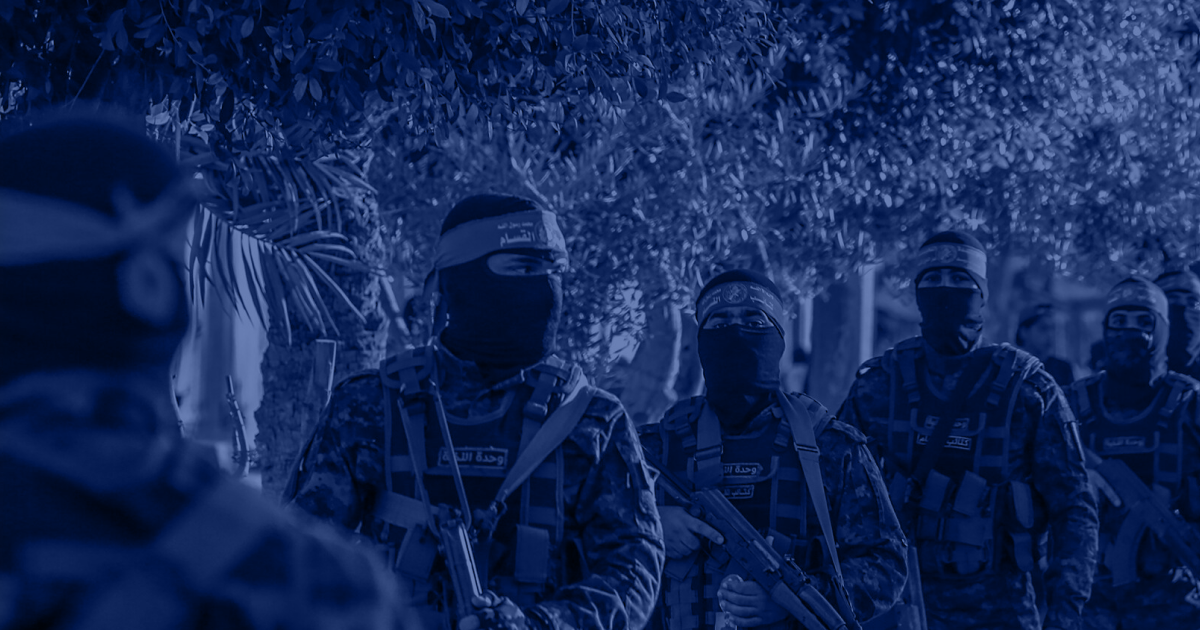
It's a conflict of the ability to communicate its power. It's kind of a form of asymmetrical power. And by asymmetrical, this is what I mean. Iran doesn't have the military strength of the US, but with relatively low-cost weapons, whether it's the Shahed drone or the rockets given to Hamas, it could show that it could undermine US foreign policy interests in the eastern Mediterranean, all the way to the conflict in Ukraine on NATO's borders. It could undermine the security interests of NATO and the US from the border of Ukraine and Poland.
There is an entire American carrier fleet being deployed to the eastern Mediterranean now to counter Iran.
That's the key thing. Counter Iran, to tell Iran and Hezbollah not to get involved. So basically, what is happening is telling Iran, we're on the same playing field, we're equal to you. And that's a victory for Iran. That's what Iran wants.
Is it correct to think that Iran tried to make war with the USA, but without a direct war, just by using other countries?
That's called a proxy war. The thing is, it's been going on since... I'll give you an exact date. When did the war begin? It's when Trump withdrew from the Iranian nuclear deal in 2017. The proxy war began. Trump is out of office, but the proxy war continues as the US hasn't gotten back into the deal. So you're absolutely correct, yes. This is the proxy war.
And how do you think, does Russia help Iran here? There were news that Russia gave Hamas weapons that they captured in Kyiv region, Ukraine. So, is Russia involved? If so, what is the benefit for Russia?
I think that's all the support Hamas wants. It's just a support of solidarity that gives it a boost. It shows that Hamas is almost treated like it's a government. It undermines its rivalry.
Hamas's greatest rivalry is not just with Israel but with the other governments in the West Bank. There are two Palestinian governments, one in Gaza run by Hamas and the other one in the West Bank run by the Palestinian Authority. If Russia meets with Hamas, that gives it a propaganda victory. It's basically being treated like an equal government.
What do you think about the Russian position that they chose Hamas as their ally?
To answer your question, it's quite amazing. Because look what happened. Russia tried to portray itself as a neutral partner in the Middle East before 2022. In other words, this is hard to imagine, but when Israel used to bomb Iranian-affiliated targets in Syria, Russia knew ahead of time Israel was going to do this and allowed it.
Russia, prior to 2022, was trying to portray this image as an equal partner, allied with both Israel, Arab states and Iran. What's happened since 2022 is that it is no longer Russian foreign policy. It has now definitely taken a side.
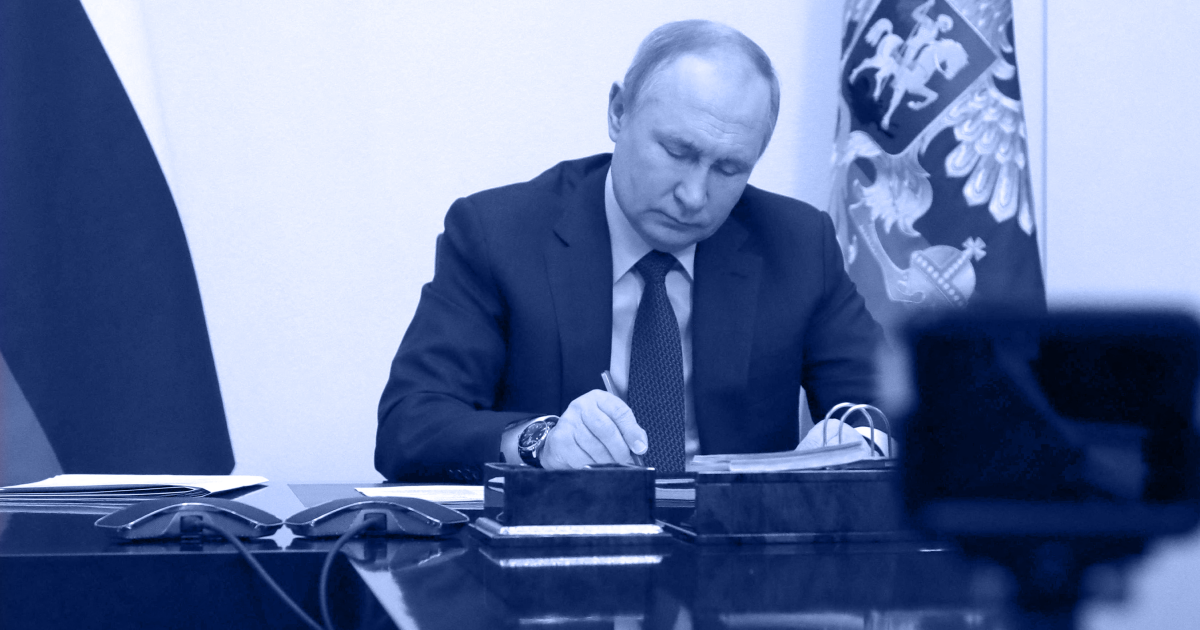
When it basically sides with Hamas, when it basically is now in this alliance with Iran, what's amazing is that Russia is definitely now becoming more of an actor in Middle Eastern politics in terms of choosing a side rather than that image as a neutral player.
And what's quite amazing. Hamas is a non-state actor. It is not an official government. But look at the kind of Russian alliances now. It's choosing a non-state actor over a state like Israel in this. It's how far politics in the 21st century have been transformed.
Yes, that's quite interesting. Talking about transformation, is it correct to call that current event the way of decolonisation processes in Palestine?
Absolutely. That's the bigger picture. And what needs to happen when you use broader terms like decolonisation is that you bring in Ukraine as well. And this is what I argue needs to be done.
We need to see the bigger picture in all of this. Particularly because everyone is going to forget. World attention is going to forget Ukraine and move to this. By decolonisation, let's look at what's happening. Ukraine was part of the Russian Empire. The Palestine mandate after World War I was part of the British Empire. And we see in both cases when a nation or groups of people try to assert their autonomy and that after the empire has left, you never can escape the imperial legacy.
And the imperial legacy is this. Russia never acknowledged Ukraine's independence because it remembers the empire, the imperial frame. And in the case of the Palestinians, basically, what do they say? The British Empire never let us be independent. And we are facing the consequences to this very day.
Look at any Palestinian, and when will they say this problem began? They begin with the 1917 Balfour Declaration, which was the British Empire's first promise that the Jews would get a home in the Palestine mandate.
Both of these conflicts are being fought in the shadow of the empire. So, the decolonisation process is basically being witnessed to this very day.
In other words, when you look at conflicts that are raging, these are all conflicts because the empire set up structures that never were dismantled. And that's what we're witnessing.
Would you give some recommendations on what to read or watch about this conflict to know more?
- The Israel-Palestine conflict: a brief, simple history by Vox (Video explainer)
- The Land is Mine by Nina Paley (Film)
- Torabyeh — Ghorbah ft. Husam Abed (Palestinian song)
- A Concise History of the Middle East by Arthur Goldschmidt Jr. and Ibrahim Al-Marashi (Book)
- From Ukraine to Lebanon, a tale of two Marias by Ibrahim Al-Marashi (Article)
- What the World Can Learn From the History of Hamas by Ibrahim Al-Marashi (Article)
- From hydro-terrorism to ecocide: Weaponising water in war by Ibrahim Al-Marashi (Article)


